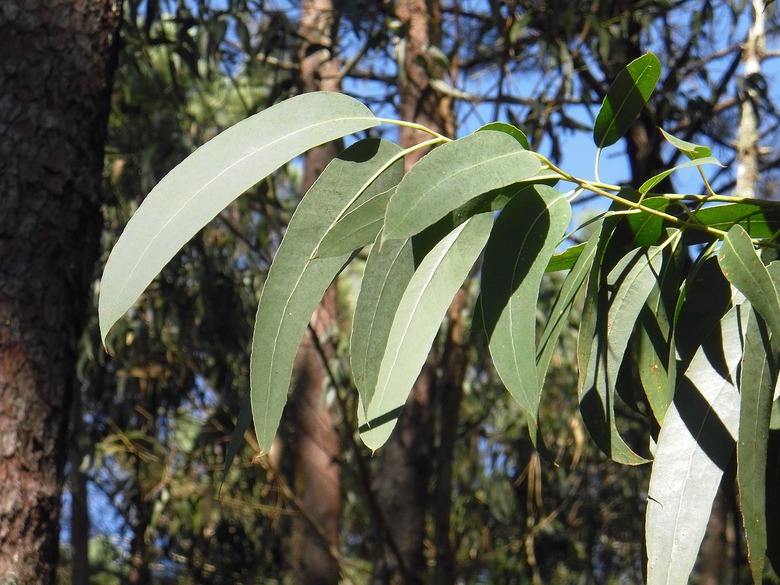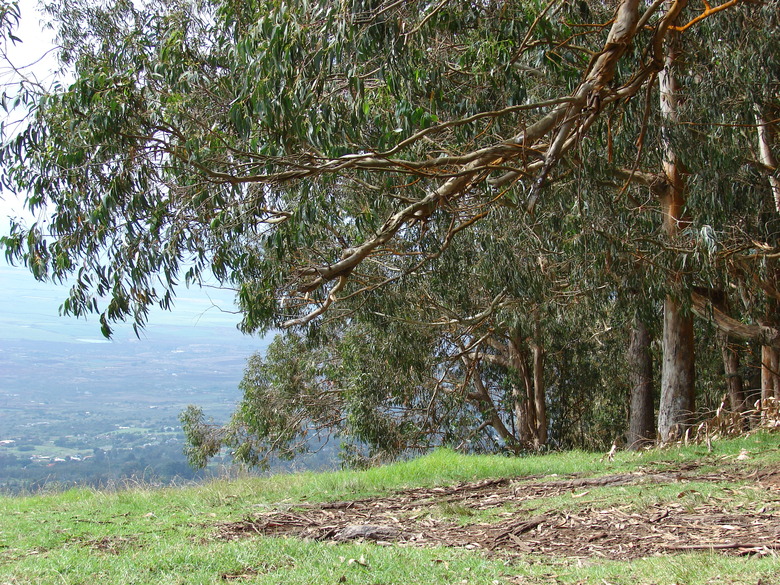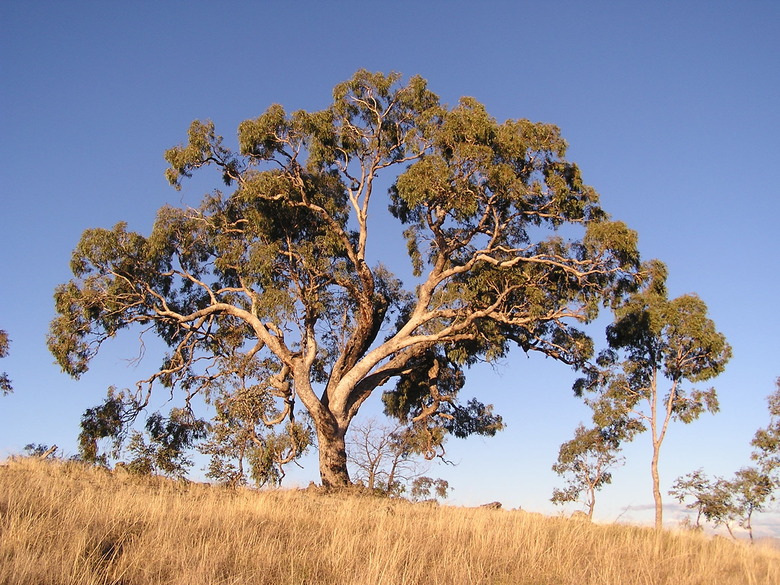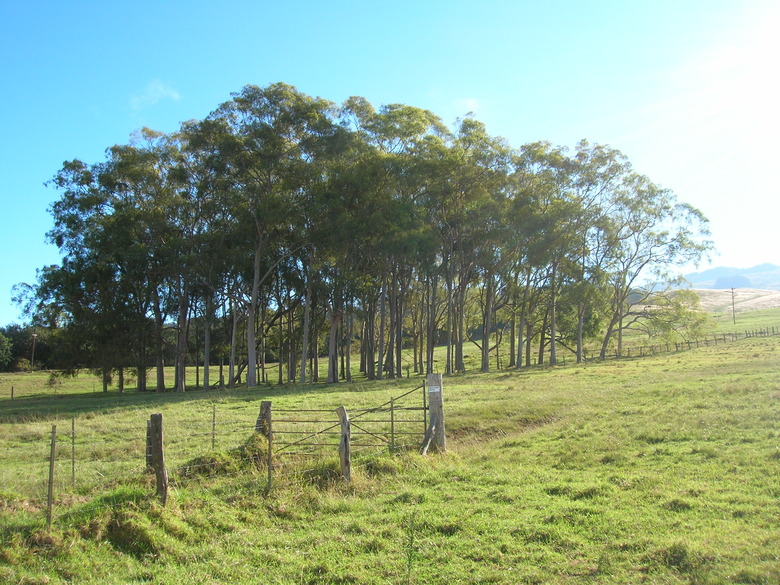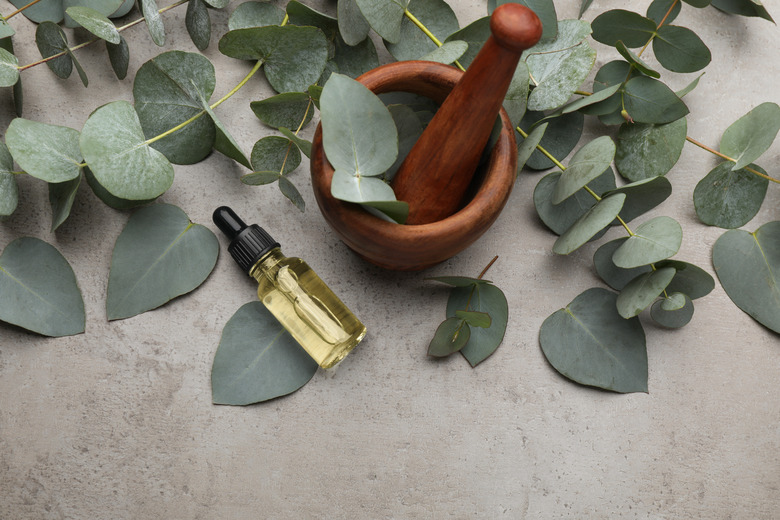What Does Eucalyptus Smell Like?
The strong smell for which eucalyptus trees (Eucalyptus spp.) are known comes from a mix of chemical compounds in their leaves, bark and wood. It is this intense eucalyptus scent and the beauty of these graceful, resilient trees that make them such a widely grown landscape tree within U.S. Department of Agriculture plant hardiness zones 7b to 10a.
Do all eucalyptus trees smell the same?
Subtle scent variations exist between eucalyptus species that give each tree its own distinctive personality, but all eucalyptus varieties share similarities of scent that make them instantly recognizable.
Tip
Eucalyptus smells sharp, woody and camphor-like, with a cooling effect when inhaled.
What Do Eucalyptus Trees Smell Like?
The primary scent note in eucalyptus is from cineole, or eucalyptol, which is a chemical compound known as a monoterpenoid. Cineole lends eucalyptus trees the camphor-like or menthol-like smell for which they are best known, and it exists in varying quantities in each species.
**Eucalyptus trees smell sharp, woody or herbaceous with a simultaneously sharp and cooling effect when inhaled.** This makes them a popular addition to cold medicines, because this can help clear and dry congested sinuses and provide a soothing effect.
Blue Gum: The Most Fragrant Eucalyptus
Blue gum eucalyptus trees (Eucalyptus globulus) have the highest concentration of cineole of all the eucalyptus species, so it is the most fragrant eucalyptus variety. According to Richters Herbs, it is the most widely used eucalyptus variety in medicine and perfumery, so the smell may be considered standard.
Gardeners in U.S. Department of Agriculture plant hardiness zones 9 and 10 can grow blue gum trees outdoors, while growers in cooler climates can grow these intensely fragrant trees in pots and overwinter them indoors.
Which Eucalyptus Plant Smells Best?
Answering the question of which eucalyptus plant smells best comes down to personal preference.
Apple Eucalyptus: Distinctive Apple Notes
Some people might prefer the pure scent of the blue gum eucalyptus, while others may prefer less common varieties, such as the apple eucalyptus (Corymbia citriodora). According to Richters Herbs, it is grown and enjoyed for the distinctive apple note in its heavily scented, evergreen leaves. Like the blue gum tree, this variety grows best in USDA plant hardiness zones 9 and 10.
Lemon-Scented Gum: A Strong, Citrusy Smell
Another eucalyptus variety with a distinctive scent is the lemon-scented gum (Eucalyptus citriodora), a variety that grows best in USDA plant hardiness zones 8 to 10. True to its common name, this variety produces a strong, citrusy smell, because the leaves contain a high concentration of the chemical citronellal, which has an intense smell similar to lemons.
According to Trees of Stanford, the smell of citronellel in lemon-scented gum trees is not only pleasant to smell but it can also help repel mosquitoes.
Recognizing Eucalyptus Poisoning
One unfortunate side effect of ingesting eucalyptus or prolonged exposure to its fragrant oil is potential poisoning. According to the California Poison Control System, eucalyptus species such as the blue gum can cause moderate poisoning symptoms, including nausea and vomiting.
Dizziness, Drowsiness, Coma or Nervous System Failure
WebMD warns against ever ingesting eucalyptus essential oil. Just 2 to 3 milliliters can cause dizziness and drowsiness, while over 5 milliliters can cause coma and nervous system failure. The risk of poisoning is much higher in children and pets due to their small body size.
Dermatitis: Red and Itchy Skin
According to North Carolina State University Cooperative Extension, another common reaction to eucalyptus is dermatitis, which is a red and itchy skin reaction. It occurs after direct exposure to the leaves, bark or oil but can also happen from aerial exposure in very sensitive people.
Always wear gloves when working closely with eucalyptus and watch for signs of any skin reaction. If a reaction occurs, stop smelling or handling the eucalyptus and wash the affected area to remove the oils.
